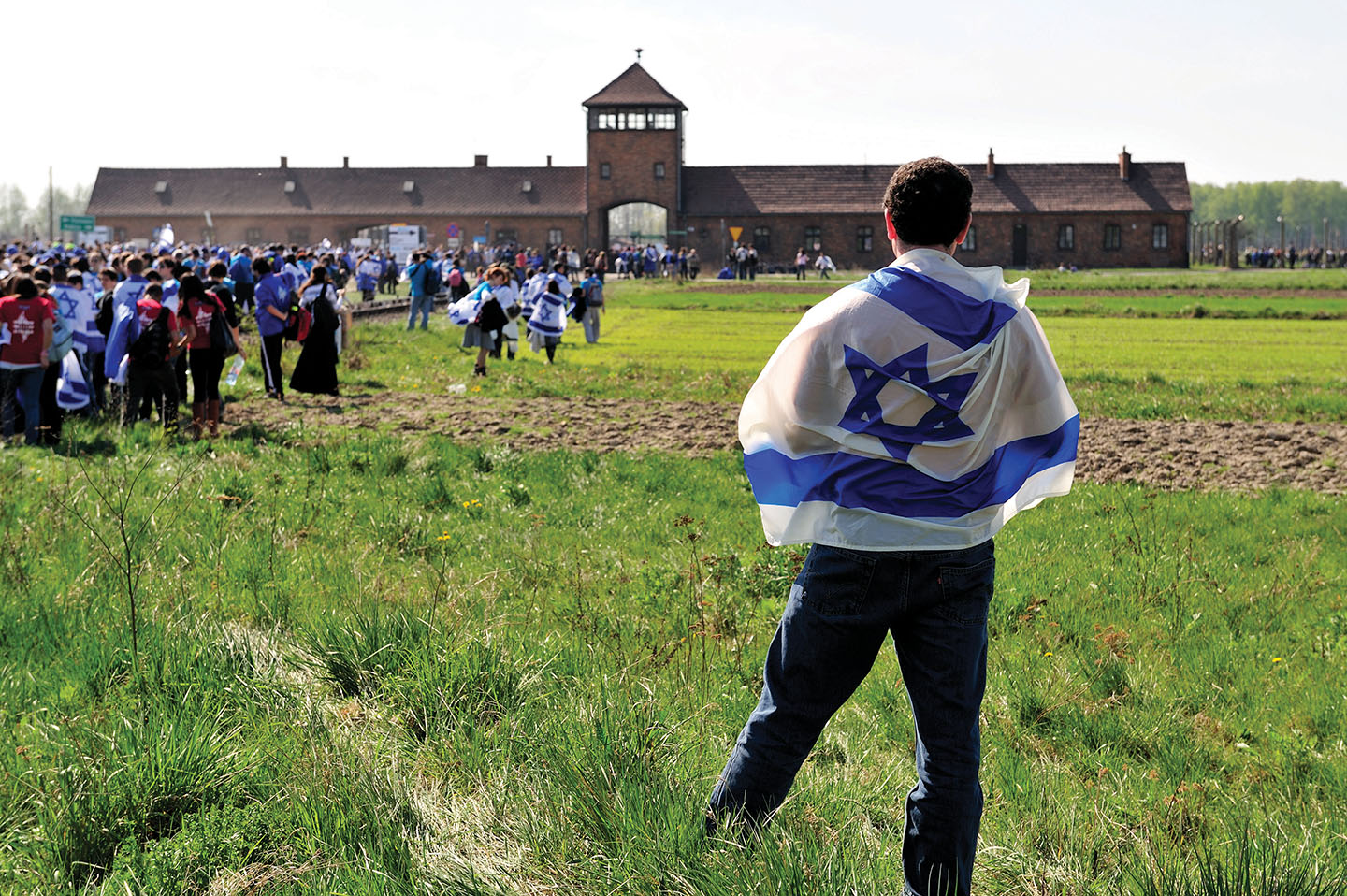This is the sermon I gave in the Krakow synagogue to a congregation mostly of teens in Poland for March of the Living, who walked the previous day from Auschwitz to Birkenau.
Shhhh. Shhhhhh.
In the Torah portion we read this Shabbat, when Aaron’s sons die, the Torah gives us two words — vayidom Aharon. And Aaron was silent.
Silence is the only true response. It contains everything, all the pain, the memories, the possibilities that cannot be said in words. Aaron expresses the deepest response to tragedy. What we have seen, all of us, the stories we have heard and the anguish we have only barely imagined, defies words. If we were to be faithful we would be silent.
But if we are silent we cannot tell their stories. And they have to be told. Because although many of you are in your teens, let me confirm something you already know. Each year of life is a year of loss. Each year you live is a year that you recognize — oh. They never got to this age, to that age. They never reached 21, or 30, or 50. I’ve spent my whole life reading about the Holocaust and I never knew what it was to not reach my age until I reached it in life. Every year you live, your recognition of their loss will grow. Bless you for being here so you can understand that.
I want you to remember not only the faces of the victims, the desperation in the eyes and the hunger, both physical and spiritual, but the faces of the perpetrators. When I saw those faces I remembered what was said about Charles Dickens, that he disliked a certain look on the face of a man when he looked down on another man. Hating that look, the mix of swagger and power and false pride and cruelty, that is what we have to keep in mind as we move through this world. The eyes of the victim, the smirk of the perpetrator.
We take three lessons from these camps. The first is that we must keep telling their stories. Again and again and again, even if it is in the ears of a tired and reluctant world. We owe them that — they must not be forgotten. Remember, in the echoing silence, that you are a voice for each man and woman and child.
Second, that as they died as Jews, we live as Jews. We do not turn our backs on the tradition that cost them their lives and for so many, gave ultimate meaning while they lived. The tradition that led people to light candles in the camps. We owe a debt to our people and our past. Remember that in the cattle car you saw at Auschwitz there is a pair of tefillin. They are there because a man arriving in Auschwitz tried to go back on the train to get his tefillin and died for it. And his child, who survived, insisted on putting tefillin there as a memorial to his father. Remember the love for tradition that led the father to go back, and the child’s love that led him to remember.
We also owe a debt to the present and the future of our people. That’s why we pray for the hostages, why we were moved when we saw Agam Berger play the violin yesterday and why we are Zionists.
Third, we can never turn our backs on others in the world who suffer. We leave here as witnesses but also as shlichim, messengers. Our voices are deepened by the knowledge of what human beings can do to one another and our responsibility to combat that evil. The world needs your voice.
I said before that in the face of the Shoah silence was the only true response. But since we must speak, we repeat the testimony of those in the camp. When they liberated Theresienstadt, they tore up the floorboards of the camp. There they found under the children’s barracks poems and drawings and reports. These inmates were your age, and younger. They had suffered unspeakably, and most of them died. The majority of the drawings and poems are anonymous forever. Here is a poem that was written by a child. I don’t know how old that child was, boy or girl, but I know that from the hell of Theresienstadt, here are their words:
BIRDSONG
He doesn’t know the world at all
Who stays in his nest and doesn’t go out.
He doesn’t know what birds know best
Nor what I want to sing about,
That the world is full of loveliness.
When dewdrops sparkle in the grass
And earth’s aflood with morning light,
A blackbird sings upon a bush
To greet the dawning after night.
Then I know how fine it is to live.
Hey, try to open up your heart
To beauty; go to the woods someday
And weave a wreath of memory there.
Then if the tears obscure your way
You’ll know how wonderful it is
To be alive.
If the memories people shared brought you to tears, you will hear the message: Having seen humiliation, we prize dignity. Having seen cruelty, we hold on to decency. Having seen a place designed for death, we cherish life.
Beyond that, there is silence.
David Wolpe is the Max Webb Emeritus Rabbi of Sinai Temple.




